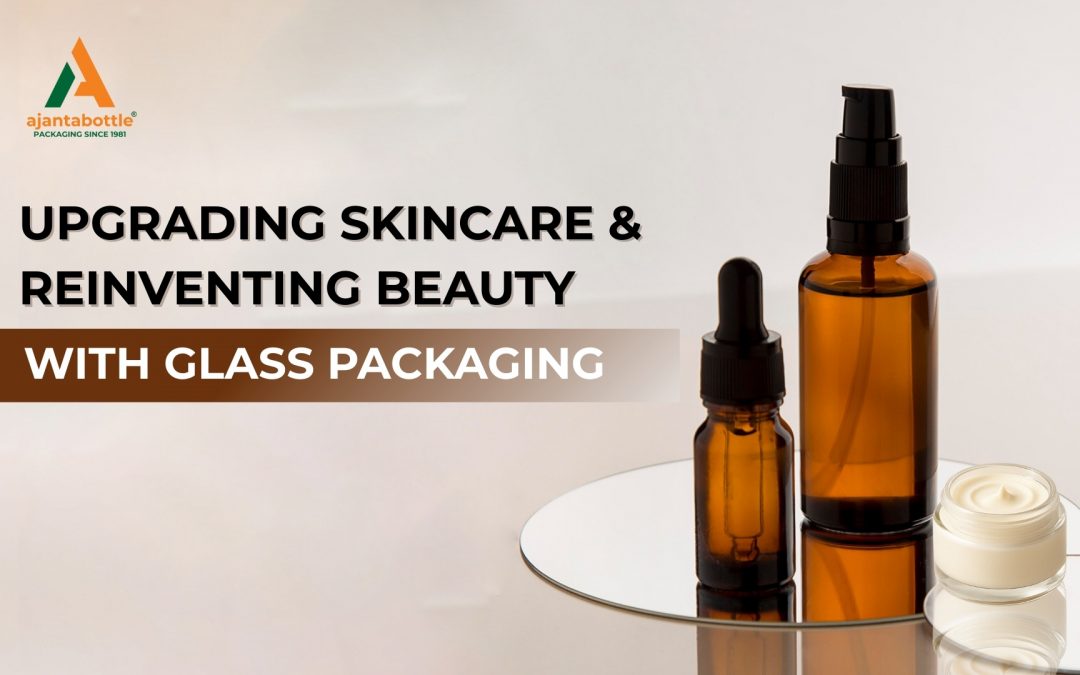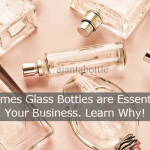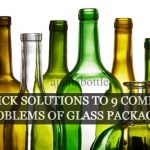The luxury skincare market is undergoing a quiet yet powerful revolution—one where packaging is as critical as the product itself. In a world where sustainability and sophistication go hand in hand, glass is steadily replacing plastic as the preferred choice for premium beauty brands. From enhancing visual appeal to aligning with eco-conscious values, glass packaging is no longer just an aesthetic upgrade; it’s a strategic shift that touches every layer of brand identity, consumer trust, and product integrity.
Today’s consumers are savvier, more intentional, and more environmentally aware than ever before. Post-pandemic priorities have shifted toward wellness, longevity, and clean living, which now extends far beyond what’s inside a product—reaching deep into the packaging itself. In this landscape, plastic, once celebrated for its affordability and convenience, is increasingly being viewed as outdated, unsustainable, and visually inferior.
By contrast, glass evokes feelings of purity, luxury, and environmental responsibility. It enhances shelf appeal, offers safety for delicate formulations, and aligns with the ethos of conscious beauty. It’s not just a container—it’s a brand statement.
In this blog, we’ll explore the rise of glass as the new gold standard in high-end skincare packaging. From its tactile luxury and visual sophistication to its material superiority, sustainable advantages, and brand storytelling power, glass is becoming the material of choice for a new generation of beauty brands. We’ll also bust common myths about its drawbacks and look at how the industry’s leading names are embracing it—not as a trend, but as a transformation.
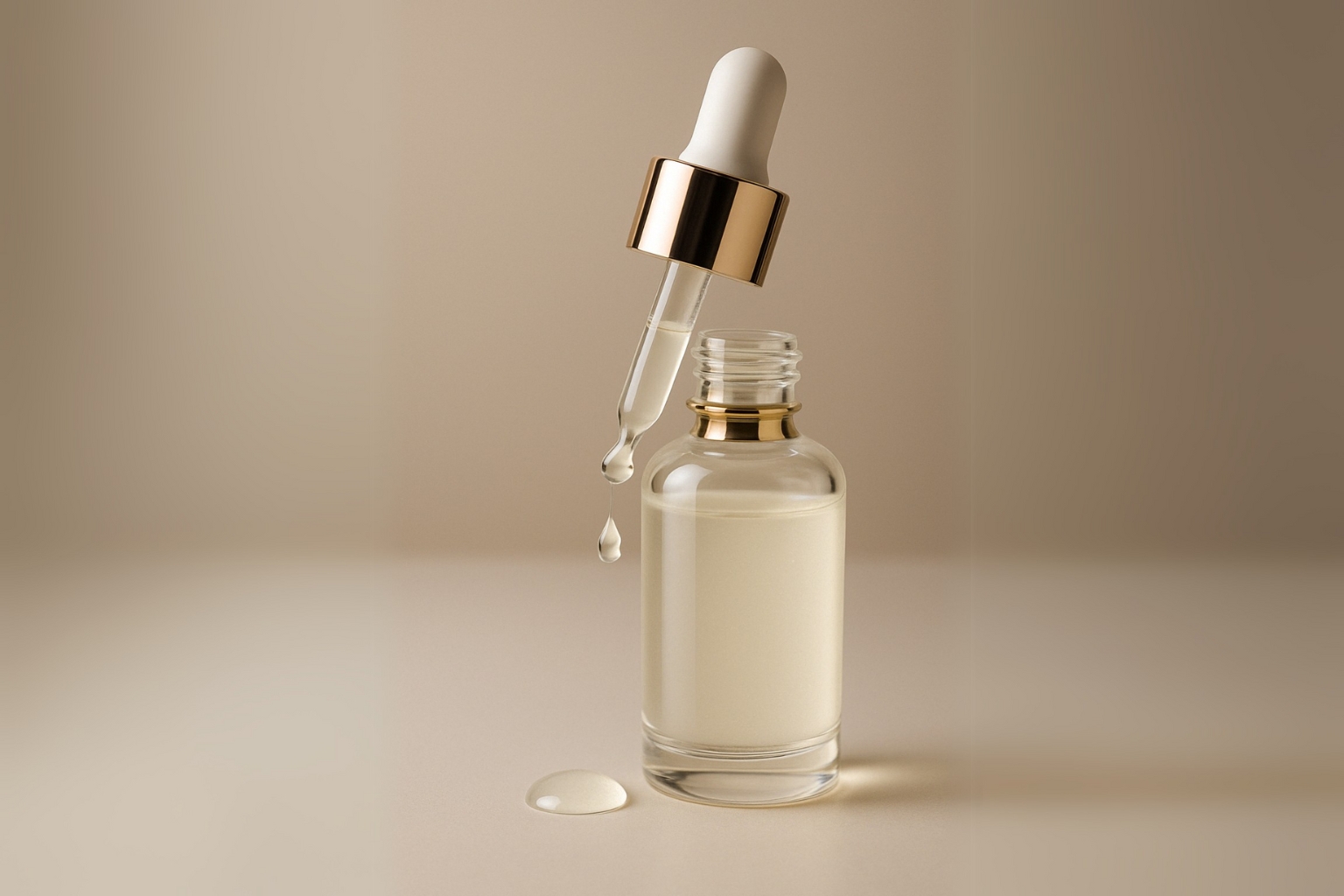
1. Luxury Skincare Branding & Sensory Appeal ✨
In high-end skincare, the product is only part of the experience—the rest is built on sensory appeal, brand perception, and the customer’s emotional connection. And in this equation, glass packaging delivers on all fronts.
The tactile feel of a glass bottle—the cool, smooth surface, the substantial weight in the hand—immediately signals quality and luxury. Unlike plastic, which can feel flimsy or generic, glass exudes a premium character. It aligns with minimalist, clean, and elegant brand aesthetics that are increasingly preferred by discerning consumers. This is especially relevant in the world of skincare, where customers expect every detail—from formulation to packaging—to reflect care and intention.
Visually, glass enhances shelf presence. Whether it’s a sleek frosted serum bottle or an amber dropper jar, glass packaging communicates sophistication. On social media, where beauty brands compete for attention, the unboxing experience matters. A beautifully packaged product in a glass bottle becomes instantly Instagrammable, enhancing both brand recall and consumer engagement.
In contrast, plastic packaging is often associated with mass-market or drugstore products. Its lightness may be convenient, but it lacks the premium feel and finish that luxury brands aim to deliver.
Leading names like The Ordinary, Kora Organics, and Herbivore Botanicals have embraced glass not just for its functionality, but as a statement of brand values. Their clean, modern designs housed in glass containers have become visual benchmarks in the luxury skincare space.
2. The Rise of Eco-Conscious Beauty: Why Packaging Matters 🌿
Today’s beauty industry is no longer just about results—it’s about responsibility. The rise of eco-conscious beauty has elevated packaging from a supporting role to a central player in a brand’s identity and ethics.
Modern consumers—particularly Millennials and Gen Z—are driving this shift. These generations grew up in the shadow of climate change and are deeply committed to sustainability. They don’t just want clean ingredients; they want them wrapped in eco-friendly packaging. According to a Nielsen study, over 70% of global consumers say they’re willing to pay more for products that come in sustainable packaging.
Packaging choices now communicate more than aesthetics—they signal a brand’s environmental and ethical compass. Skincare consumers increasingly expect transparency about the lifecycle of the bottle or jar they’re holding. Is it recyclable? Will it contribute to landfill waste? Was it manufactured responsibly?
The pandemic only accelerated this consciousness. With a renewed focus on health, hygiene, and long-term well-being, customers began scrutinizing packaging more than ever. Brands that could demonstrate clean packaging aligned with clean beauty principles began earning greater loyalty and trust.
At the same time, government regulations and sustainability mandates are pressuring brands to move away from plastic. Initiatives like the EU’s single-use plastic directive, India’s Plastic Waste Management Rules, and corporate ESG requirements are reshaping the global packaging landscape.
In this evolving ecosystem, glass emerges as the clear winner—a material that satisfies the aesthetic expectations of luxury, while meeting the sustainability standards of the future.
3. The Skincare Advantage: Glass vs. Plastic Packaging 🔬
While beauty and ethics play their roles, material science is where glass truly shines. Its physical and chemical properties give it unmatched advantages over plastic, especially in the realm of high-performance skincare.
Firstly, glass is chemically inert. It doesn’t interact with the active ingredients inside, ensuring that formulations stay stable, effective, and uncontaminated. This is especially important for potent, ingredient-rich products like retinol creams, vitamin C serums, and botanical concentrates, where packaging plays a direct role in preserving efficacy.
Secondly, glass is non-leaching and free from toxic compounds such as BPA and phthalates—both of which have been linked to serious health concerns and are commonly found in various plastics.
In the context of skincare, this matters even more. When plastic containers leach these toxins into creams, serums, or lotions, they can cause skin irritation, allergic reactions, or even disrupt the skin barrier, especially for people with sensitive or acne-prone skin.
Over time, chronic exposure to such contaminants may also trigger hormonal imbalances that impact skin health, contributing to issues like inflammation, premature aging, and breakouts. For consumers investing in clean, results-driven skincare, the idea that their bottle might compromise their skin defeats the entire purpose—and is often a deal-breaker.
From an environmental standpoint, glass is 100% recyclable and endlessly reusable. Unlike plastic, which often downgrades in quality after each recycling cycle, glass can be melted and remade infinitely without loss of purity or performance. In fact, recycled glass (cullet) requires less energy to process than virgin glass, reducing carbon footprints across the production line.
Moreover, glass is ideal for refill systems and reuse programs. High-end skincare brands can now design beautiful, durable glass packaging that customers are proud to display—and refill again and again.
Plastic, in contrast, is often viewed as disposable, unsustainable, and visually underwhelming. It also deteriorates faster under UV exposure and often requires additional barriers or coatings to preserve products—further complicating its environmental impact.
With options like amber and frosted glass, skincare brands can protect light-sensitive products while enhancing visual appeal. Amber glass blocks harmful UV rays naturally, making it the preferred choice for photosensitive formulations.
In every measurable way—health, longevity, sustainability, and safety—glass outperforms plastic, making it the material of choice for premium skincare products.
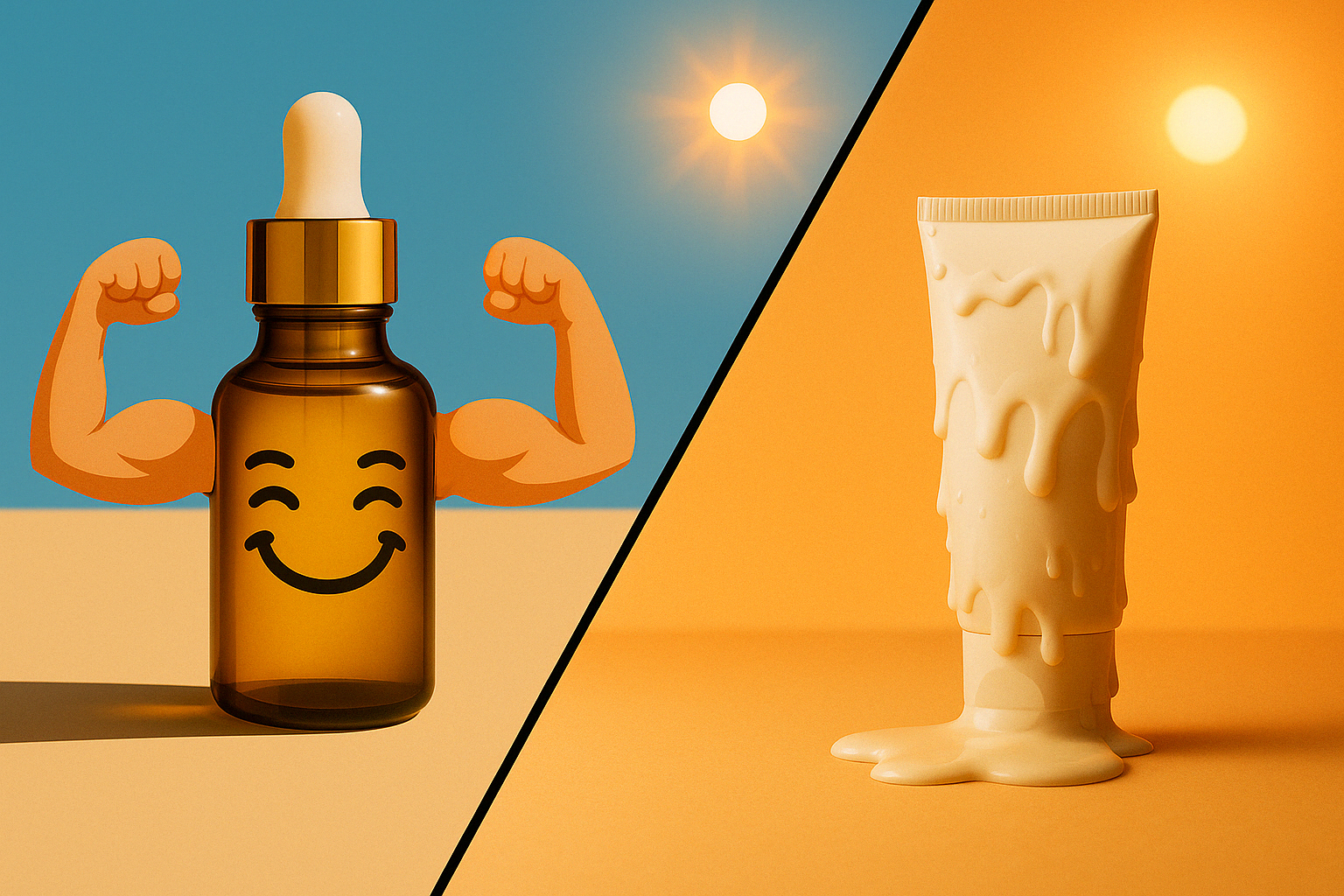
4. Debunking the Myths Around Glass Packaging 🧯
Despite its growing popularity, glass packaging still faces some misconceptions that deter brands from making the switch. However, modern packaging innovations have successfully addressed these concerns, making many of them outdated.
Myth 1: Glass is too heavy.
While traditional glass does carry more weight than plastic, manufacturers now offer lightweight glass designs that reduce shipping costs and environmental impact. These optimized forms maintain strength while improving efficiency for both retail and e-commerce distribution.
Myth 2: Glass breaks too easily.
New innovations in tempered and borosilicate glass have significantly increased durability. Paired with protective outer packaging and thoughtful bottle design, glass can withstand both warehouse handling and long-distance shipping with ease. Many premium skincare brands already ship globally with no breakage concerns.
Myth 3: Glass is expensive.
The initial cost of glass may be higher than plastic, but it brings long-term value through brand elevation, consumer trust, and sustainable reuse. Plus, with refill models and packaging return incentives, brands can recapture value while promoting circular consumption habits.
Myth 4: Glass isn’t compatible with modern closures.
On the contrary, today’s glass bottles are highly versatile. Brands are increasingly adopting airless pumps, dropper caps, locking lids, and hybrid dispensers that integrate seamlessly with glass bases—delivering functionality without compromising luxury aesthetics.
Importantly, refill stations and take-back programs are making it easier for glass packaging to scale across regions. From Lush’s returnable pots to L’Occitane’s glass refill pouches, industry pioneers are proving that glass can be part of large-scale, sustainable systems.
As myths are dismantled by real-world solutions, it becomes clear that the barriers to using glass are no longer technological—they’re strategic. Brands that move past assumptions and embrace the modern potential of glass stand to gain on every front.
5. Innovation & Customization: How Glass Is Becoming Flexible 🎨
Far from being rigid or one-size-fits-all, glass packaging is evolving into one of the most customizable and innovative formats in the skincare industry.
One exciting trend is the use of airless pump systems with glass bases. These designs help protect oxygen-sensitive products like peptides and antioxidants while offering the sleek, weighted feel of glass. Similarly, dropper bottles, mist sprays, and roll-on applicators are now widely available in glass-compatible forms.
Brands are also exploring hybrid combinations—such as pairing glass bottles with metallic or bio-resin closures—to improve functionality without losing sight of sustainability or aesthetics. These innovations allow brands to cater to both modern convenience and luxury appeal.
When it comes to branding, glass is a dream material. Its surface can be adorned with screen printing, foil stamping, matte coatings, UV finishes, frosting, and embossing—transforming packaging into art. Whether a brand wants a minimalist, apothecary look or a bold, jewel-toned aesthetic, glass offers the flexibility to create distinctive, memorable identities.
Moreover, glass can be molded into creative shapes and silhouettes—from geometrically inspired jars to sculptural bottles that feel like perfume flacons. This level of artistry not only supports product differentiation but also enhances emotional connection and collectibility.
Additionally, with the growing demand for personalization, glass bottles can now include engraved logos, batch numbers, and limited-edition finishes, helping brands deliver exclusivity in every unit. For luxury lines and boutique skincare startups, this kind of customization is not just attractive—it’s essential to stand out in a crowded market.
In short, glass allows luxury skincare brands to strike the perfect balance between innovation, functionality, and visual storytelling—a rare trifecta in packaging design.
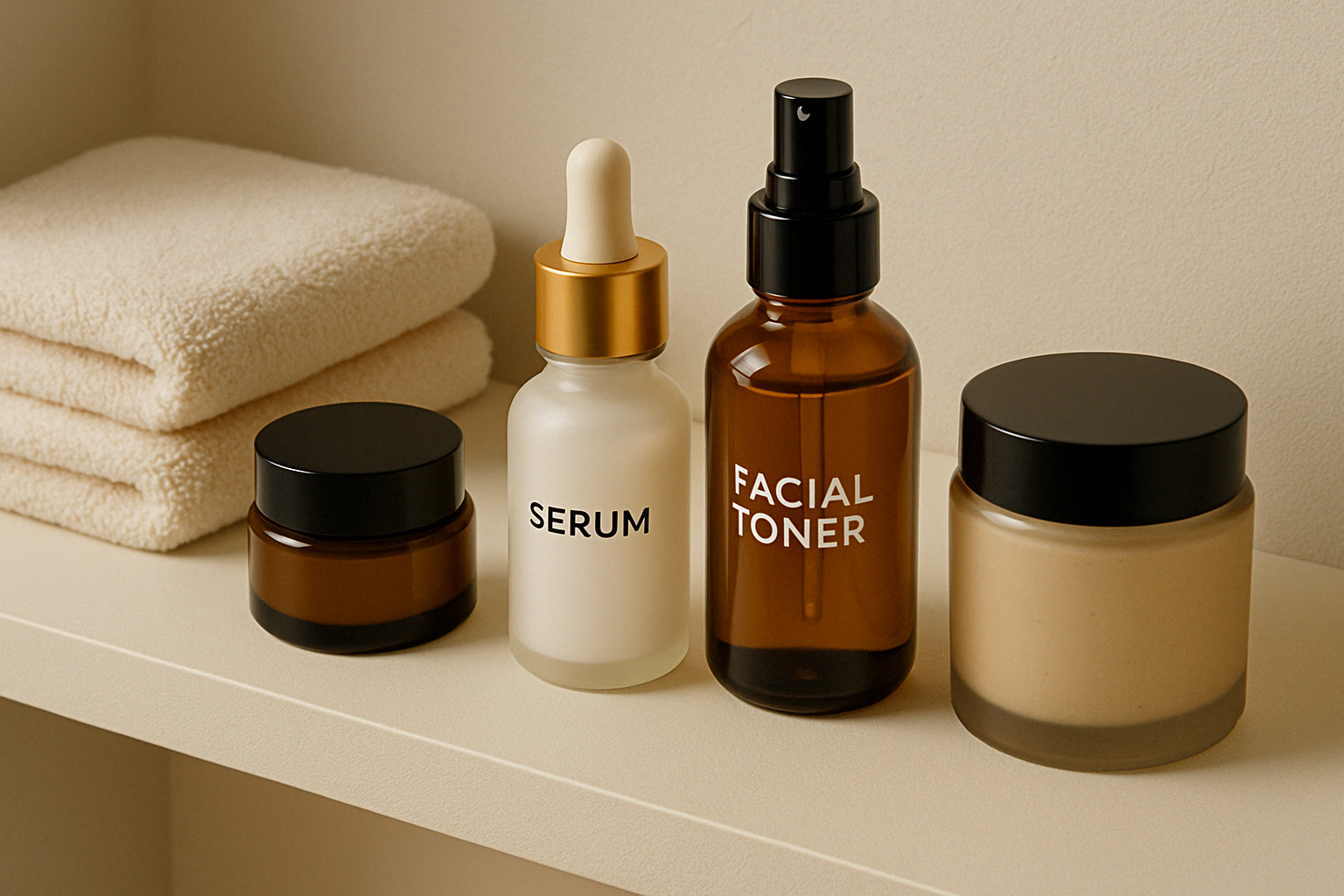
6. The Impact: Shifts in Brand Perception & Consumer Trust 💠
The shift to glass doesn’t just impact how a product looks—it transforms how a brand is perceived, trusted, and talked about.
Luxury skincare brands that make the switch from plastic to glass consistently report stronger consumer engagement, positive press coverage, and higher perceived value. Why? Because glass reinforces the brand’s promise of quality, safety, and sustainability.
Take The Ordinary, a brand known for transparency and science-backed skincare. Their use of clear glass dropper bottles supports the idea of clean formulations, clinical precision, and minimalist values. Similarly, Kora Organics, founded by supermodel Miranda Kerr, aligns its use of frosted glass with its commitment to certified organic ingredients and sustainability.
Even smaller indie brands like Wildcrafted Organics and Apoterra Skincare have found that using glass helps build trust with eco-conscious consumers—turning packaging into a visible symbol of ethics and excellence.
From customer reviews to influencer content, glass packaging generates more buzz. People are more likely to photograph and share products that look and feel luxurious. This creates organic marketing opportunities and strengthens the emotional bond between consumer and brand.
Moreover, glass reinforces trust in product efficacy, especially for ingredient-focused skincare. A customer is more likely to believe in the potency of a vitamin C serum in an amber glass bottle than in a lightweight plastic tube.
In a world of brand noise and greenwashing, glass becomes a proof point, a tangible representation of a brand’s promise to do better—for the skin and for the planet.
Conclusion: A Clear Shift Ahead
The shift from plastic to glass in high-end skincare packaging is more than a trend—it’s a powerful movement rooted in conscious consumerism, material integrity, and brand evolution.
Glass checks every box: it’s safe, sustainable, elegant, and endlessly customizable. It protects sensitive formulations, boosts shelf appeal, and reflects the values of modern beauty buyers. It doesn’t just house a product—it elevates it.
For skincare brands aiming to lead in a cleaner, greener, and more luxurious future, now is the time to rethink your packaging strategy. Glass offers not just a sustainable alternative but a storytelling tool—one that connects your brand’s mission to the hearts and habits of your audience.
The future of skincare isn’t plastic—it’s pure, powerful, and packaged in glass.
Read Also:
- Why Everyone’s Switching to Minimalist Perfume Bottles in 2025: https://www.ajantabottle.com/blog/minimalist-packaging-in-perfume/
-
Glass Packaging: 8 Essential Insights for Smarter Packaging Investments: https://www.ajantabottle.com/blog/glass-as-smart-investment/
Need some amazing and eye-catching Packaging Solutions for your products?
Contact our packaging advisors today to learn more about our products and services, and to address any question/query.
Connect with us:
Email at sales@ajantabottle.com
Phone/Whatsapp: +91 9891098918
You can also shop from more than 500+ packaging solutions on www.ajantabottle.com – India’s first ever comprehensive packaging e-commerce portal.
For additional information, browse through our blog at https://www.ajantabottle.com/blog/ or subscribe to our latest updates through our social media channels,
*YouTube channel: https://www.youtube.com/c/Ajantabottle
*LinkedIn Page: https://www.linkedin.com/company/ajantabottle
*Facebook Page: https://www.facebook.com/glassbottleindia
*Instagram Page: https://www.instagram.com/ajantabottle/
*Google Business Profile Manager: https://g.page/r/CXTH9MKpe2DuEBM/review

